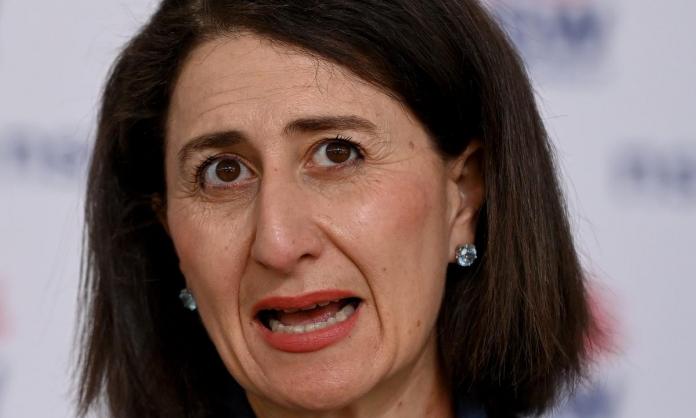Gladys Berejiklian was asked at a daily press conference: why are Bunnings stores still open? She didn’t have an answer. It’s a good question, and it’s one that workers at Bunnings Warehouses in Sydney have been asking for weeks. I know: I’m one of them.
Three weeks ago, a petition began circulating in the Eastgardens store, demanding that the store be closed to the public, both for the safety of the workers and for the wider community. By then, both “click and collect” and delivery-based online orders had already skyrocketed, with hundreds of local customers, and thousands across the state, doing the socially responsible thing: staying home and shopping online when they had to. But at the same time, we had record high numbers of in-store sales, with huge crowds of customers coming in to browse and shop.
Frustrated, desperate, but hopeful of having an impact, more than 50 workers signed the petition within two weeks. Immediately, team members at that store were targeted by management for chats about their “mental health”. Management suggested that if workers feel stressed or unsafe, they use sick leave or annual leave, or even go on leave without pay: a kind gesture from those who want to see workers' health and safety put at risk for the sake of Wesfarmers profits!
Dozens of Bunnings stores across New South Wales have been listed as COVID-19 Delta variant exposure sites. Many of these have been exposure sites multiple times.
Every time we come in to work, our health—our lives—are put at risk. It’s a risk of which many of us are entirely aware, but it’s one that we have no option but to take. As one worker said: “State and national managers can talk all they want about how we’re all in this together, but we’re the ones on the floor, on the front lines, working in unsafe conditions.”
And there’s another problem. The union representing us—my union—is the SDA, notorious as one of Australia's most pro-boss trade unions. SDA officials have been implicated in helping bosses rip off their own workers, signing away wages and conditions at major employers in sweetheart deals. Unsurprisingly, they haven't raised a peep about the need to restrict access to stores.
It can be tempting to focus too much blame on individual customers coming in for non-essential shopping. To be sure, buying a peace lily or new storage system are hardly “essential” activities in a pandemic outbreak. Customers coming in with their entire family and pets for a fun day out is non-essential. Coming in for a coffee and wandering the store while chatting on the phone or with partners or friends is non-essential. People should act responsibly.
But the real responsibility and accountability lies with Bunnings management, who consistently want to pass the blame on to individual customers not following guidelines, or who dodge responsibility by referring to NSW government guidelines—which have deemed Bunnings an essential service.
It’s a crime that the NSW government refuses to close down a number of retailers to the public, like Bunnings, Officeworks, and apparently even the Reject Shop. But the managing director of Bunnings, Mike Schneider, has repeatedly made clear that they support these NSW guidelines. In a livestream to employees, Schneider went so far as to express his disapproval of the Victorian government deeming Bunnings’ in-store shopping as non-essential during its strictest lockdown, and said that he has lobbied for that designation to be changed!
Sections of management across the state have resorted to shades of COVID-denial, parroting many of the anti-science talking points of the far right. Workers have been told, for instance, that COVID poses little risk to us, because we’re healthy young people. Others have been told that COVID is comparable to the flu and that it’s not airborne.
They’ve used intimidation tactics as well: veiled threats around job security, remarks on how lucky we are to have jobs with a great company like Bunnings. But mostly we’ve been reassured, over and over and over, that Bunnings cares about our health more than anything else, and that management is doing everything they can to keep us safe.
We know this isn’t true. Bunnings doing what it can to keep us safe would, above all else, involve moving the store entirely to online and trade only—meaning in-store shopping would be restricted to those who need equipment for work—while the current outbreak continues. This worked in Victoria. The logistical infrastructure already exists. It would ensure customers get their essential (and non-essential) products. It’s also a move which would probably be a blow to the company’s profits.
So we’re being offered up as sacrificial lambs to record high sales and ever-increasing Wesfarmer share prices. A worker noted, “This situation is a ticking time bomb. Will it take one of our coworkers dying before we start to see any changes?”
Our concerns have been noted. And then ignored.
Supporters have launched a change.org petition to gather support from Bunnings workers and anyone who thinks that health and safety matter more than extra profits.








